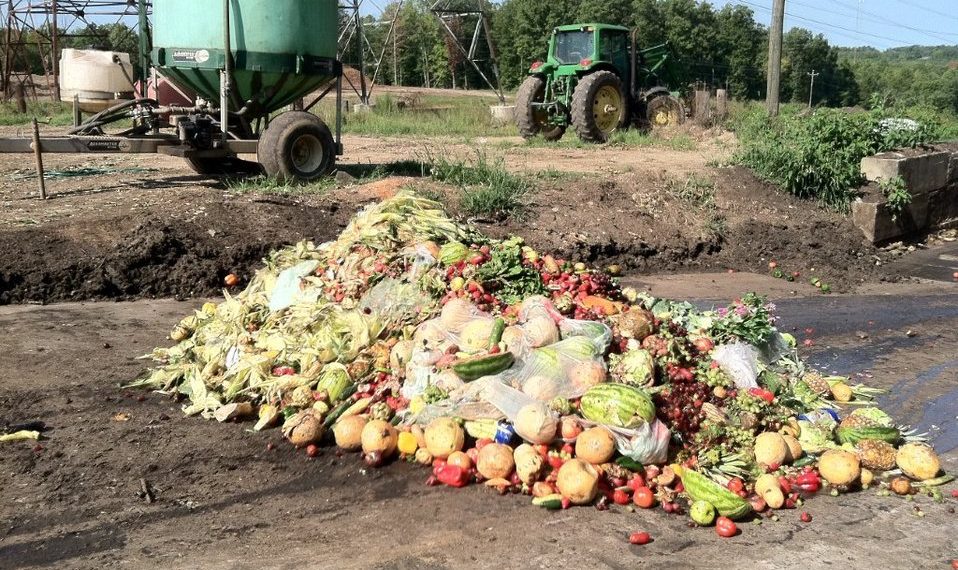In the run up to the UN Climate Action Summit in September 2019, national leaders will be looking for ways to ratchet up their commitments—known as “Nationally Determined Contributions” (NDCs)—under the historic Paris Agreement on climate change. One way to increase ambition is to include food loss and waste reduction.
It’s a commonly overlooked solution. But it can be found on every farm to every fork, and provides climate, food security and economic benefits—all at once.
What’s food loss and waste got to do with climate?
A third of all food produced for human consumption is lost or wasted between harvest and the home. According to the UN Food and Agriculture Organization (FAO), this food loss and waste accounts for about 4.4 gigatonnes of greenhouse gas emissions per year. If food loss and waste were its own country, it would be the world’s third-largest emitter, surpassed only by China and the United States.
In other words, food loss and waste has everything to do with climate!

Where do these emissions come from?
The greenhouse gas emissions associated with this food loss and waste come from a variety of sources, including:
- On-farm agriculture emissions—including from the digestive systems of cows, manure from livestock, on-farm energy use and fertilizer emissions—for producing food that is ultimately lost or wasted;
- The production of electricity and heat used to manufacture and process food that is lost or wasted;
- The energy used to transport, store and cook food that is lost or wasted;
- The landfill emissions from decaying food; and
- The emissions from land use change and deforestation associated with producing food that is ultimately lost or wasted.
What benefits can reducing food loss and waste provide?
Reducing food loss and waste is an example of what’s good for the climate being good for the economy and for people. It’s one of those rare “triple-win” strategies everyone has been looking for from the Paris Agreement. Reductions can save money for farmers, companies and households. Wasting less can mean feeding more. And reductions can alleviate pressure on precious water and land resources—and help address climate change.
Moreover, reducing food loss and waste will help countries meet Target 12.3 of the Sustainable Development Goals (SDGs), which calls to cut food loss and waste in half by 2030.
How can countries reduce their food loss and waste?
To realize these benefits of reducing food loss and waste, governments should follow a straightforward “Target, Measure and Act” approach:
- Target: Targets set ambition, and ambition motivates action. Governments should adopt explicit food loss and waste reduction targets aligned with SDG Target 12.3.
- Measure: The old adage “what gets measured gets managed” is true for food loss and waste as well. Governments should measure food loss and waste within their borders, publish the results, and monitor progress toward achieving the reduction target over time—measuring at least every five years.
- Act: In the end, action is what ultimately matters. Based on information gathered from measurement, governments should develop and implement strategies for tackling their food loss and waste hotspots. Which strategies are most appropriate vary between countries and where their loss and waste occurs in the food supply chain. Food loss and waste tends to be more prevalent closer to the farm in developing countries and closer to the fork in developed countries.

Click to enlarge
As the chart below illustrates, there are a lot of actions that a country (and its companies and citizens) can pursue. Which are most relevant will be a function of where the hotspots of food loss and waste are in your country.

Click to enlarge
How can a country get started?
One effective way to get started is for countries to include targets for food loss and waste reduction in their NDCs. This helps focus government attention, private sector efforts and public-private investment. To date, however, fewer than a dozen countries have done so. More need to.
Fortunately, there is plenty of technical support available to help countries in this effort. Initiatives such as the NDC Partnership can help countries strengthen their NDCs and find the technical and financial support they need to implement new ambitions on food loss and waste reduction.
Why now?
At Paris, countries agreed to put forward NDCs by 2020 as part of five-year cycles to ratchet up ambition. The 2019 UN Climate Action Summit is a critical opportunity for leaders to make public announcements that they will address food loss and waste when they enhance their national commitments. The time to strengthen action is right now.
So, countries of the world, use this opportunity to tackle food loss and waste in your NDCs—and capture climate, economic and food security benefits all at once.



